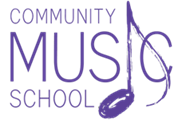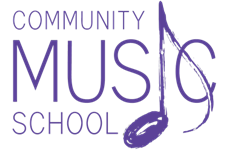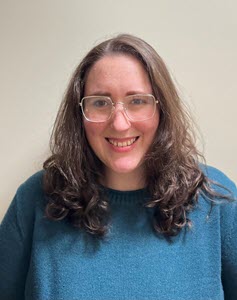Music therapy can make a tremendous difference for students of all ages with any type of special need. Children and adults with mental health needs, developmental and learning disabilities, brain injuries, physical disabilities, Alzheimer’s and other aging related conditions or those in acute and chronic pain are all welcome to participate in individual or group music therapy at Community Music School.
Intro to Music Therapy Group for ages 4-6
Mondays 4:15-5pm
January 6-27, 2025
Using music, movement, and instrument play, our weekly music therapy class encourages musical, social, physical, and emotional growth for children across the developmental spectrum. Creative early intervention strategies including music therapy programming can be used to successfully reach young children with identified developmental delays or other unique needs. Young children and their parents/caregivers will have fun engaging in music making that supports their emotional, social, cognitive and language development. Children will engage in activities that engage fine and gross motor skills, verbal and listening skills and all while getting used to being a part of a structured environment.


